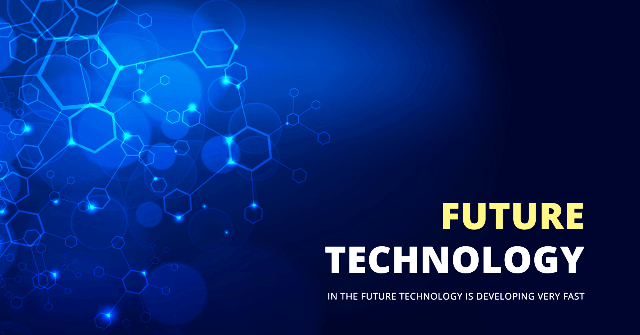Ifvod is an innovative technology that stands for “Intelligent Fast Video Object Detection.” It is a cutting-edge system that employs artificial intelligence and advanced algorithms. These advanced AI algorithms rapidly identify and track objects within video streams. Its relevance in the tech industry lies in its ability to enhance various applications, such as surveillance, autonomous vehicles, medical science, robotics, data science, robotics and video analytics.
By enabling real-time and accurate object detection, Ifvod opens up new possibilities for industries seeking efficient and intelligent solutions. Its impact on the tech industry is profound.
It is revolutionizing the way we interact with visual data. So, it is paving the way for exciting advancements in AI-driven video processing and analysis.
Overview of my article
This blog aims to explain its fundamental principles, functionalities, and applications, shedding light on how Ifvod has become a game-changer in the world of artificial intelligence and video processing.
My article begins by defining Ifvod as “Intelligent Fast Video Object Detection,” highlighting its relevance in real-time object identification and tracking within video streams. It employs an active voice to present the information in a clear and engaging manner, ensuring readers grasp the key concepts effortlessly.
Moving forward, the article delves into the technical aspects of this amazing technology, elucidating its working mechanism, the components involved, and the algorithms driving its intelligence. This active voice approach emphasizes the dynamic nature of the technology and its real-time capabilities.
Furthermore, the article showcases diverse use cases across industries, illustrating how its is transforming surveillance, robotics, autonomous vehicles, and video analytics. By using active voice, the article conveys the impact of Ifvod in these sectors, making it evident how the technology is shaping the tech industry.
The active voice continues to be employed while discussing the advantages and limitations of Ifvod. It elucidates its benefits such as speed, cost-effectiveness, and enhanced user experiences, while also addressing challenges like privacy concerns and AI biases.
Understanding Ifvod Technology
Understanding Ifvod technology is essential to grasp its potential in revolutionizing video object detection. Its origin and development can be traced back to the need for faster and more efficient object detection in video streams.
A team of AI researchers and engineers developed this amazing technology. The aim was to overcome the limitations of traditional approaches and leverage the power of deep learning and computer vision.
At its core, Ifvod utilizes advanced artificial intelligence algorithms, particularly deep neural networks, to analyze video frames and detect objects in real-time. Its key functionalities include rapid object identification, accurate tracking, and adaptability to various video resolutions and formats. The technology’s emphasis on real-time processing ensures that it can cater to applications where timely decision-making is crucial.
When compared with other existing technologies, object detection sets itself apart by achieving superior speed and accuracy. Unlike some conventional methods that rely on hand-crafted features, deep learning-based approach enables it to learn and generalize from vast amounts of data.
So, it leads to improved object detection performance. Additionally, its adaptability to different video streams and ability to handle complex scenes gives it a competitive edge over traditional methods.
How Ifvod Works
How does Ifvod works? It is deeply rooted in its technical architecture and components. Most importantly, this intelligent technology is built on a robust and scalable deep learning framework. Its deep learning framework facilitates efficient video object detection.
The architecture comprises multiple layers of neural networks, such as convolutional neural networks (CNNs) and recurrent neural networks (RNNs). CNNs and RNNs process and analyze video frames in real-time.
Its data processing begins with the input of video streams. The data processing breaks video streams down into individual frames. These frames are then fed into the neural networks. CNNs and RNNs conduct a series of convolutions and activations to extract meaningful features.
Subsequently, the network performs region proposal techniques to identify potential object regions. Then intelligent algorithms refine and classify identified objects based on learned patterns.
To achieve its remarkable object detection performance, Ifvod utilizes advanced AI techniques. It leverages transfer learning. Transfer Learning fine tunes pre-trained models on large datasets to adapt to specific object detection tasks.
Moreover, it implements object tracking algorithms, such as Kalman filtering or deep SORT. Object tracking algorithms help to maintain consistent identifications across frames and handle object occlusions.
Furthermore, Ifvod incorporates Non-Maximum Suppression (NMS) to eliminate redundant bounding boxes and thus it retains only the most confident predictions. This optimization significantly reduces false positives and enhances the overall accuracy of object detection.
Use Cases and Applications of Ifvod
Looking into the future, Ifvod’s potential applications are vast. Below, I am discussing tested cases and applications of Ifvod.
Surveillance and Security
Fast video object dtection has found widespread applications across various industries, revolutionizing the way they utilize video object detection. In the field of surveillance and security, it enhances real-time monitoring by accurately identifying and tracking suspicious objects or individuals. Thus law enforcement authorities can bolster safety measures in public spaces, airports, and critical infrastructure.
Self-Driving Cars
Additionally, Ifvod plays a pivotal role in autonomous vehicles. So, It can enable autonomous vehicles to perceive their surroundings, detect obstacles, and make informed decisions. And it is now advancing the development of self-driving cars. Now, auto manufacturers are developing and testing AI driven vehicles.
Robotics
In robotics, Ifvod facilitates object recognition and manipulation, empowering robots to perform complex tasks in dynamic environments. Advanced AI algorithms and neural networks are developing robots to perform complex tasks. Complex tasks might include critical medical surgeries, metallurgy processes at high temperatures and product designing with minute details.
Retail and super stores
Moreover, Ifvod’s capabilities in video analytics enhance retail operations. So it can allow businesses to monitor customer behavior, optimize store layouts, and improve inventory management.
Traffic Management
Several case studies demonstrate the successful implementation of Ifvod in real-world scenarios. For instance, a smart city initiative is taken to optimize traffic management. Amazingly, it resulted in reduced congestion and improved road safety.
Healthcare sector
In the healthcare sector, advanced object detection algorithms have been applied to automate medical image analysis, expediting disease diagnosis and treatment planning. Complex neurosurgeries can easily be performed. This technology is saving patients in critical operations.
Industry Automation
Another case study highlights the integration of Ifvod in industrial automation. It can facilitate quality control and defect detection in manufacturing processes. Now, an industrialist can achieve increased efficiency and reduced costs.
Environmental Monitoring
It holds promise in environmental monitoring, aiding in wildlife conservation efforts by tracking and studying animal populations.
Entertainment Industry
In the entertainment industry, Ifvod could be leveraged for augmented reality experiences and interactive gaming. Virtual effects are fundamental in producing augmented reality.
Disaster Management
Furthermore, its real-time object detection capabilities could be employed in disaster response and relief operations, assisting emergency services in locating survivors and assessing damages.
As the technology continues to evolve, its versatility and adaptability will likely unlock novel use cases across multiple domains, making it an indispensable tool in the tech-driven world.
Limitations and Challenges
Despite its remarkable capabilities, it is facing a lot of challenges and problems. So, I am discussing major issues in detail in upcoming paras.
Privacy and Data Security
In spite of its incredible powers, Ifvod is facing privacy and data security issues. As the technology processes video streams in real-time, there are concerns about the collection and storage of sensitive information, potentially violating individuals’ privacy rights.
To address these issues, developers must implement robust data anonymization techniques. IT professionals analyzing video streams must adhere to stringent data protection regulations. Employing on-device processing can also mitigate data privacy risks This technique will ensure that sensitive data remains localized and secure.
Potential Biases
Another challenge involves the potential biases in AI models used by objection detection. These biases can lead to inaccurate or unfair object detection, especially when the training data contains imbalanced representations of certain objects or demographics.
Developers must actively address these biases through diverse and representative training datasets, coupled with bias detection and mitigation techniques during the model’s development. Regular monitoring and retraining of the models can help improve their fairness and accuracy.
Technical hurdles
Technical hurdles faced by Ifvod include the need for substantial computational resources, particularly for real-time processing of high-resolution video streams. Developers are constantly striving to optimize algorithms and hardware acceleration to reduce processing times and resource requirements.
Additionally, fast video object detection may encounter challenges in handling complex scenes with occlusions and overlapping objects. Advancements in multi-object tracking algorithms and 3D vision technologies can improve Ifvod’s performance in such scenarios.
Federated Learning
Possible improvements for object detection include leveraging federated learning to enhance privacy by training models across multiple devices without sharing raw data. Additionally, integrating explainable AI techniques can help interpret the model’s decisions and build trust in its predictions.
Continual research and collaboration within the AI community are essential to overcome these limitations and challenges, making it a more robust and responsible technology in the evolving landscape of video object detection.
Ifvod’s Impact on the Tech Industry
Ifvod’s impact on the tech industry has been nothing short of disruptive. Its real-time video object detection capabilities have challenged and reshaped existing tech landscapes. AI driven algorithms of this technology are replacing the traditional methods of video processing and object detection.
Industries like surveillance, autonomous vehicles, robotics, and video analytics have witnessed a significant transformation, unlocking new possibilities and applications. Companies that adopt Ifvod gain a competitive edge by offering faster and more accurate solutions to their customers. Advanced object detection algorithms are revolutionizing how they interact with visual data.
Market trends and adoption rates of Ifvod indicate a rapid and widespread acceptance in the tech industry. As its performance and capabilities become more evident, businesses across various sectors are incorporating this technology into their products and services.
The market for AI-powered video object detection has grown exponentially, with an increasing number of startups and established tech companies investing in research and development to leverage artificial intelligence’s potential.
Moreover, as the technology matures and becomes more accessible, adoption rates are expected to soar, leading to a greater proliferation of fast object detection and vistualisation in the tech market.
Ifvod’s influence on other tech advancements and innovations is far-reaching. Its success has spurred further research and development in the field of computer vision and AI-driven video analysis.
Researchers and engineers are continuously pushing the boundaries of AI technologies to improve object detection algorithms and thus it is leading to novel applications in diverse domains.
Furthermore, Ifvod’s emphasis on real-time processing has motivated advancements in hardware acceleration and cloud computing, contributing to the overall growth of AI infrastructure.
Ethical Considerations with Ifvod
The widespread adoption of object detection raises ethical implications that demand careful consideration. One primary concern is privacy, as Ifvod’s real-time video object detection may inadvertently capture and process personal information, potentially violating individuals’ privacy rights.
Striking a balance between surveillance benefits and individual privacy is crucial. Developers must prioritize data anonymization and implement robust security measures to protect sensitive information.
Moreover, ensuring transparency in the use of Ifvod technology is essential to maintain public trust and avoid potential misuse.
Responsible AI development and usage are paramount to address ethical concerns with Ifvod. Bias in AI models is a critical issue, and developers must actively work to minimize and eliminate biases to prevent discrimination and unfair treatment.
Employing diverse and representative training data and regularly auditing AI models can help achieve more equitable outcomes. Furthermore, incorporating explainable AI techniques can enhance the interpretability of Ifvod’s decisions, enabling users to understand and trust the system’s results.
The deployment of Ifvod in various industries must adhere to relevant regulatory aspects and guidelines. Governments and regulatory bodies must establish clear frameworks that address issues such as data privacy, consent, and transparency.
Compliance with these regulations is essential to prevent misuse and ensure that it benefits society without infringing on individual rights. Additionally, international cooperation in setting ethical standards for AI technologies, including Ifvod, can foster responsible development and deployment globally.
Future of Ifvod
The future of Ifvod holds promising predictions and forecasts for the technology. As AI and computer vision continue to evolve, it is expected to become even more efficient and accurate in real-time video object detection.
Its application areas are likely to expand further, with increased integration in industries like healthcare, agriculture, and entertainment. Additionally, advancements in hardware and cloud computing will enable faster and more scalable implementations of object detection, making it accessible to a broader range of users.
Potential advancements and research directions for Ifvod include exploring multimodal approaches that combine video with other sensor data, such as LiDAR or radar, to enhance object detection in complex environments.
Further research in zero-shot learning and few-shot learning techniques can enable fast video object detection to recognize novel objects with minimal training data, improving its adaptability. Additionally, efforts in tackling interpretability and implementation of AI models will ensure that its decisions are transparent and trustworthy.
The long-term impact of Ifvod on the tech industry and society is profound. As it continues to advance, it will play a crucial role in shaping the development of autonomous systems, smart cities, and human-robot interactions.
The technology’s ability to enhance video analytics and object detection will have far-reaching implications for security, safety, and efficiency in various domains. However, with this progress comes the responsibility to address ethical and societal challenges associated with AI adoption.
Its impact will spur discussions on data privacy, AI ethics, and regulation, necessitating collaborative efforts to establish guidelines for responsible AI deployment.
Button Line
Ifvod’s significance lies in its role as an Intelligent Fast Video Object Detection technology, reshaping the tech industry with real-time and accurate object identification in video streams. Its impact has been evident in various sectors, from surveillance and autonomous vehicles to robotics and video analytics.
Ifvod’s potential is vast, with predictions of further advancements and applications in diverse fields like healthcare, agriculture, and disaster response. However, the challenges of data privacy, AI biases, and responsible development must be addressed to ensure its ethical deployment.
As this technology continues to evolve, its future in the tech landscape holds promise, with the potential to revolutionize AI-driven video processing and analysis, driving innovation and improvements across industries.



